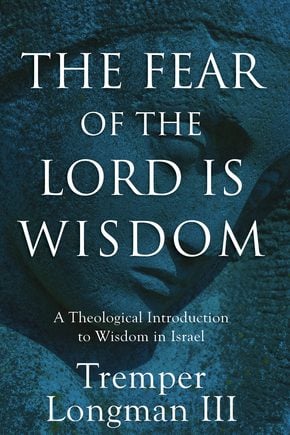 Were the Sages of the Bible to be found in schools? Were they male elites? Were they professionals alongside priests and prophets (“go to the next door down, sir, if you’d like to talk with a Sage — this is the door for Priests”)? Is the Sage a father passing on wisdom to sons and daughters?
Were the Sages of the Bible to be found in schools? Were they male elites? Were they professionals alongside priests and prophets (“go to the next door down, sir, if you’d like to talk with a Sage — this is the door for Priests”)? Is the Sage a father passing on wisdom to sons and daughters?
These are the questions Tremper Longman asks and answers in his book The Fear of the Lord is Wisdom. They are also questions with very defined answers in the history of wisdom scholarship.
Where are Sages found today?
Were they in schools? The first clear evidence connecting Sages to schools is in Ben Sirach (51:23), but this means the Protestant Old Testament does not connect Sages to the school and, in fact, does not even mention schools. But there were schools in the Ancient Near East. When Proverbs 23:23 says “don’t sell wisdom and discipline and understanding” then we have something that sounds like schools in Israel. Is this a metaphor? Longman’s right if cautious: we don’t know if Israel had schools prior to Ben Sirach.
Were there professional sages? Longman writes,
The OT identifies people as wise (hakam). The question, though, is whether this label is simply highlighting a personal trait or whether it is a professional designation. Solomon, for example, is called wise, but he was not a sage. He was a king, a wise king (at least early in his reign) to be sure. But are there some people who are sages? That is, are there professional wise men and women?
The wise woman of Tekoa (2 Sam 13-14)? the wise woman of Abel Beth Maakah (2 Sam 20)? court counselors (2 Sam 15-16; 13:3)?
The use of “wise” or “sage” for some who weren’t might indicate a professional category (e.g., Eccles 12:9). The best evidence in Jeremiah 18:18: “Then they said, “Come, let us make plots against Jeremiah—for instruction shall not perish from the priest, nor counsel from the wise, nor the word from the prophet. Come, let us bring charges against him, and let us not heed any of his words.”
What was the social setting of the Sages of Israel? From the royal court circles or from another sector of society? Longman again,
In the final analysis, however, it appears that the origin, development, collection, and use of the proverb does not have a single setting but rather comes from all sectors of the society. This conclusion in particular pertains to the production and use of proverbs.
But then we have Prov 1:1; 25:1 and 31:1, each of which connects the wisdom of the Proverbs to royal courts and thus to high status in society. Others come from farmers (10:5; 11:1). What to say? We cannot be certain. Wisdom emerges in Israel from different settings.
Where is wisdom to be found? where there are those who fear God and who learn wisdom. It’s not a class of people but the character of persons.











